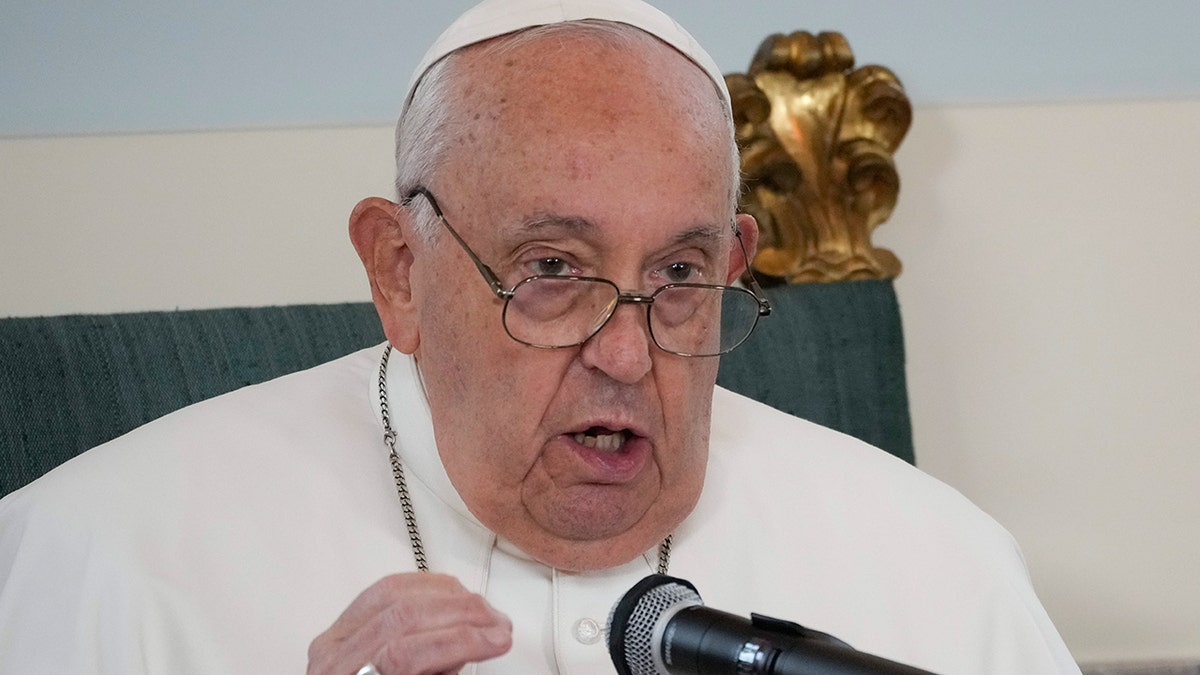A Dark Day for Catholicism: Pope Francis Confronts Abuse Scandals in Belgium
Pope Francis recently found himself in the eye of a storm as he faced not just the ecclesiastical pressures of his office, but the harsh truths of a deeply damaged institution. In an unprecedented meeting in Belgium, he listened to the harrowing testimonies of abuse survivors who have been scarred by the very church he leads. Hosted in the regal halls of Laeken Castle, the event was nothing short of a wake-up call for the Catholic Church.

The Pope’s visit was marked by poignant interactions with survivors of abuse.
An Unforgettable Welcome
The day began with the King of Belgium, Philippe, extending a formal welcome to the Pope. However, unlike the usual diplomatic niceties, the king’s words were steeped in sorrow and gravity. He urged the church to “work incessantly” in atoning for the myriad sins it has committed, especially the abuse and forced adoption scandals that have so profoundly affected so many lives. His tone was striking; one could sense the weight of not only his royal role but also that of a concerned leader, urging accountability.
Francis has often spoken about the church’s need to reconcile its past – but on this occasion, it became quite evident that the stakes were higher than mere words. The raw undercurrent of pain and resentment was palpable in the hall. In fact, this was one of the boldest welcomes directed at a pope in modern memory, highlighting the ongoing crisis that continues to unravel the church’s legacy in Belgium.
Confronting Survivors: A Two-Hour Dialogue
As the day wore on, the Pope’s meeting with 17 abuse survivors turned from a formal engagement into a deeply emotional dialogue. For two hours, these courageous individuals confronted him with their trauma, shame, and hope amidst the devastation. Notably, survivor Emmanuel Henckens encapsulated the spirit of the meeting when he said, “to an extent they went to the crux of the evil. He said it was no longer possible to look the other way.” This was a significant moment, a reckoning of sorts that underscored the need for change within the church.
Yet another survivor, Koen Van Sumere, painted a more stark picture of what must come next. He stated, “If you want to move toward forgiveness and reconciliation it is not sufficient to only say ‘I am sorry’ but you have to bear the consequences it entails and you should compensate the damages.” These words resonate deeply; how can healing occur without recompense? The gravity of restitution is not merely symbolic; it invokes a genuine commitment to rectify the wrongs.

An emotional meeting, laden with the weight of history and loss.
Acknowledgment and Accountability
Pope Francis’s reactions during this tumultuous day were an intriguing mix of humility and insistence on the need for transformation. He extended apologies and expressed remorse, framing the failures of the church as a source of shame. In his public remarks, he stated, “This is our shame and humiliation.”
The implicit admission of guilt on his part raises urgent questions: Can an organization so entrenched in its tradition, with centuries of governance and doctrine, genuinely transform? Or are these just words meant to soothe the wounds inflicted over decades of silence and neglect?
The Vatican has been adamant about a new path forward, claiming through a statement that Pope Francis will assess the requests for reparations put forth by the victims. However, one must wonder whether this approach signals a genuine overhaul or merely a band-aid on a gaping wound.
Moving Towards Healing
Many victims welcomed the words from both the church and state leaders — a moment of validation amidst years of fighting for acknowledgment. The discourse surrounding survivor-centered reparations has never been more crucial. A reformative framework might not only assist in trauma recovery but can symbolically represent the church’s step towards justice.
As I reflect on this meeting, it’s clear that the Pope’s visit has the potential to ignite significant conversations not just in Belgium, but globally. The dynamics of forgiveness, accountability, and restitution are not just ecclesiastical debates; they resonate through our collective conscience, demanding a reckoning that extends far beyond the walls of the church.
Let us hope this moment can transform into a movement, compelling leaders and organizations everywhere to face their truths head-on.
In conclusion, the road ahead is undoubtedly fraught with challenges. Yet, if the survivors of abuse can muster the courage to confront their own hells, surely the church can rise to meet their painful histories with a determination to ensure that never again will such atrocities diminish the sanctity of faith.
Final Thoughts
The events in Belgium underline a much-needed confrontation with the past and spell a turning point for the Catholic Church. The time has come not only for dialogue but for tangible actions that empower the voices long silenced in the shadows. While words are one step forward, actions will echo through eternity. As we look ahead, may the strides taken by Pope Francis lead not just to a more inclusive church, but also to healing and justice for all that have suffered.
Learn more about Pope Francis’s commitments and the ongoing conversation surrounding church accountability.


 Photo by
Photo by 









